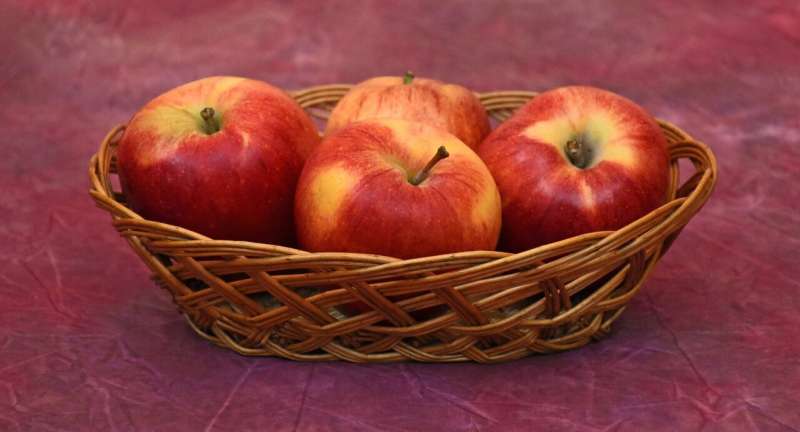How Consuming Tea, Chocolate, and Apples May Help Reduce Blood Pressure

Discover how everyday foods like tea, chocolate, and apples rich in flavan-3-ols can help lower blood pressure and improve heart health through natural dietary choices.
Maintaining healthy blood pressure levels is vital for cardiovascular health, but many people seek simple dietary strategies to support their heart. Recent research explores the positive effects of specific foods rich in plant compounds called flavan-3-ols, which are naturally present in everyday foods like tea, chocolate, and apples.
Flavan-3-ols belong to the flavonoid family, a group of phytochemicals responsible for the vibrant colors in plants and their protective qualities. These compounds are found in high concentrations in black and green tea, dark chocolate, grapes, apples, and certain berries. When you taste the slightly bitter or tart notes in dark chocolate and strong tea, flavan-3-ols are likely at work.
Scientists have been investigating their health benefits for years. A prominent study, the Cosmos trial, involving over 21,000 participants, demonstrated that cocoa flavanols can significantly reduce mortality from cardiovascular diseases by 27%. Building on this, a new analysis reviewed data from over 5,200 individuals across 145 controlled trials, focusing on how flavan-3-ols influence blood pressure and blood vessel health.
The studies showed that consuming about 586 mg of flavan-3-ols daily—equivalent to 2-3 cups of tea, a couple of apples, or servings of dark chocolate—can lower systolic blood pressure (the top number) by approximately 2.8 mmHg and diastolic pressure (the bottom number) by 2 mmHg on average. For those with high blood pressure or hypertension, the reductions were even more significant, reaching up to 6–7 mmHg systolic and 4 mmHg diastolic, comparable to some medication effects.
Additionally, flavan-3-ols improved endothelial function, which is crucial for healthy blood flow, with an average increase of 1.7% in flow-mediated dilation (FMD). These benefits were observed even in individuals with normal blood pressure, suggesting that flavan-3-ols could serve a protective role for blood vessels.
The side effects of consuming flavan-3-ol-rich foods are generally mild, primarily minor digestive discomfort, making them a safe dietary addition. While optimal effects are most apparent in individuals with elevated blood pressure, even those with normal readings may experience improved vascular health.
Given these findings, integrating flavan-3-ol-rich foods into your diet can be a practical, enjoyable way to support cardiovascular health. Approximately 500–600 mg of flavan-3-ols daily—achievable through modest daily food choices like tea, dark chocolate, apples, grapes, and berries—may help prevent hypertension-related complications such as heart attacks and strokes.
It's recommended to prioritize whole foods over supplements, as foods contain a synergistic combination of beneficial compounds that enhance health effects. Incorporating small daily swaps, such as replacing sugary snacks with fruit and dark chocolate or adding an extra cup of tea, can gradually improve your heart health. Regular monitoring of blood pressure at home can help gauge the impact of dietary changes.
Further research is necessary to fully understand how flavan-3-ols interact with medications and to explore potential benefits for specific populations, such as individuals with diabetes. Nonetheless, current evidence supports the inclusion of flavan-3-ol-rich foods as part of a balanced, heart-healthy diet, making food a powerful tool for cardiovascular prevention.
Stay Updated with Mia's Feed
Get the latest health & wellness insights delivered straight to your inbox.
Related Articles
Consuming Leafy Greens May Reduce Risk of Heart Disease, New Study Suggests
A new study suggests that consuming a cup and a half of leafy greens daily can significantly lower the risk of heart disease by enhancing vascular and bone health through Vitamin K1 intake.
Low-Fat Vegan Diet May Enhance Weight Loss Compared to Mediterranean Diet
Recent research indicates that a low-fat vegan diet may promote greater weight loss than the Mediterranean diet, partly due to lower dietary acid load and its health benefits.
Influence of Fathers' Adolescent Eating Habits on Children's Diet Quality
Studies show that fathers' dietary habits during adolescence significantly influence their children's eating patterns, emphasizing the importance of early healthy lifestyle choices for the next generation.
Impact of Dollar Store Food Purchases on American Diets: An In-Depth Analysis
A comprehensive study reveals how dollar stores are increasingly contributing to American households' calorie intake, especially in lower-income communities, highlighting concerns about dietary quality and public health.



